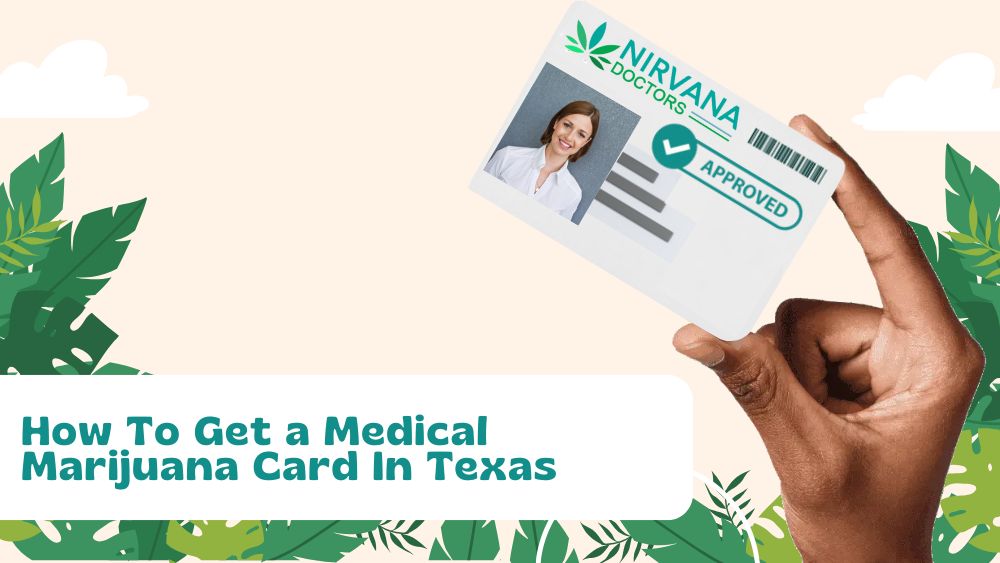The landscape of medical marijuana in Texas has evolved significantly over recent years, with legislative changes paving the way for broader access to cannabis treatments. The state’s medical marijuana program aims to provide patients with legal access to cannabis for therapeutic purposes. This guide outlines the process of obtaining a medical marijuana card in Texas, including qualifying conditions, application steps, and essential updates for 2025.
Overview of the Massachusetts Medical Marijuana Program
Before delving into Texas, it’s beneficial to look at the Massachusetts medical marijuana program, known for its comprehensive approach to patient care. Launched in 2013, the program allows patients with specific medical conditions to access marijuana for therapeutic use. Massachusetts has established a robust framework, including dispensaries, patient education, and ongoing research into the benefits of cannabis. This successful model serves as a reference point for other states, including Texas, as they refine their medical marijuana regulations.
Updated Qualifying Conditions for 2025
As of 2025, the list of qualifying conditions for obtaining a medical marijuana card in Texas has been updated to better reflect patient needs and emerging research. The following conditions are now recognized:
- Cancer: Patients diagnosed with any form of cancer can qualify.
- Epilepsy: Those suffering from intractable epilepsy may benefit from cannabis.
- Multiple Sclerosis: Chronic pain and muscle spasms associated with multiple sclerosis are covered.
- Parkinson’s Disease: Patients with Parkinson’s can access medical marijuana for symptom relief.
- PTSD: Post-Traumatic Stress Disorder is included, allowing veterans and others to seek relief.
- HIV/AIDS: Individuals living with HIV/AIDS are eligible.
- Chronic Pain: Severe and chronic pain conditions that interfere with daily living can qualify.
- Autism: Patients with autism spectrum disorders may find therapeutic benefits.
- Amyotrophic Lateral Sclerosis (ALS): Those diagnosed with ALS can apply.
- Other debilitating conditions: Patients suffering from conditions deemed debilitating by a healthcare provider can also qualify.
Step-by-Step Guide to Applying for a Medical Marijuana Card
Getting a medical marijuana card in Texas involves several steps. Here’s a clear guide to help you through the process:
Step 1: Consult a Licensed Healthcare Provider
Before anything else, it is crucial to consult a licensed healthcare provider familiar with the Texas medical marijuana program. They will evaluate your condition, discuss potential benefits and risks, and determine if you qualify under the updated list of qualifying conditions for 2025.
Step 2: Obtain a Written Recommendation
If your healthcare provider confirms that you qualify, they will provide you with a written recommendation. This document is essential for the next steps in the application process.
Step 3: Gather Required Documents
Prepare the necessary documentation, which typically includes:
- Your Texas driver’s license or ID
- Proof of residency
- The written recommendation from your healthcare provider
- Any medical records that support your application
Step 4: Complete the Application
Visit the Texas Department of Public Safety (DPS) website to access the application for a medical marijuana card. Complete the form with accurate information and upload your documents.
Step 5: Pay the Application Fee
There is an application fee associated with obtaining your medical marijuana card. Ensure that you pay this fee as instructed on the DPS website.
Step 6: Await Approval
Once you submit your application, you will need to wait for the DPS to process it. This may take several weeks, so be patient during this period.
Step 7: Receive Your Medical Marijuana Card
Upon approval, you will receive your medical marijuana card by mail. This card allows you to legally purchase medical marijuana from licensed dispensaries in Texas.
Legislative Changes in 2025
In 2025, significant legislative changes were enacted to expand the accessibility of medical marijuana in Texas. Key updates include:
- Broader Qualifying Conditions: The addition of new qualifying conditions reflects a more comprehensive understanding of cannabis benefits.
- Increased Patient Education: Programs aimed at educating patients on the safe and effective use of medical marijuana have been implemented.
- Streamlined Application Process: Efforts to simplify the application process have made it more user-friendly.
Importance of Consulting a Licensed Healthcare Provider
Consulting a licensed healthcare provider is vital for anyone considering medical marijuana. They not only ensure that patients meet the qualifying conditions but also provide personalized guidance on treatment options, dosage, and potential interactions with other medications. This step is essential for safe and effective treatment.
Frequently Asked Questions
-
What is a medical marijuana card?
- A medical marijuana card allows patients to legally obtain and use cannabis for medicinal purposes.
-
How long does the application process take?
- The application process may take several weeks, depending on the DPS’s workload.
-
Can I grow my own marijuana with a medical card?
- No, home cultivation is not permitted in Texas, even for medical marijuana cardholders.
-
Where can I purchase medical marijuana?
- Medical marijuana can be purchased from licensed dispensaries in Texas.
-
Is there an age limit for obtaining a medical marijuana card?
- Patients must be at least 18 years old to apply independently; minors require a legal guardian to apply on their behalf.
-
Can I use my medical marijuana card in other states?
- Texas medical marijuana cards are not recognized in other states, so check local laws before traveling.
-
What happens if my application is denied?
- If denied, you can appeal the decision or seek a second opinion from another healthcare provider.
-
How often do I need to renew my medical marijuana card?
- Medical marijuana cards in Texas typically need to be renewed annually.
-
Can I drive with my medical marijuana card?
- Yes, but driving under the influence of marijuana is illegal.
-
Will my insurance cover medical marijuana?
- Most insurance plans do not cover medical marijuana costs, so patients should plan accordingly.
